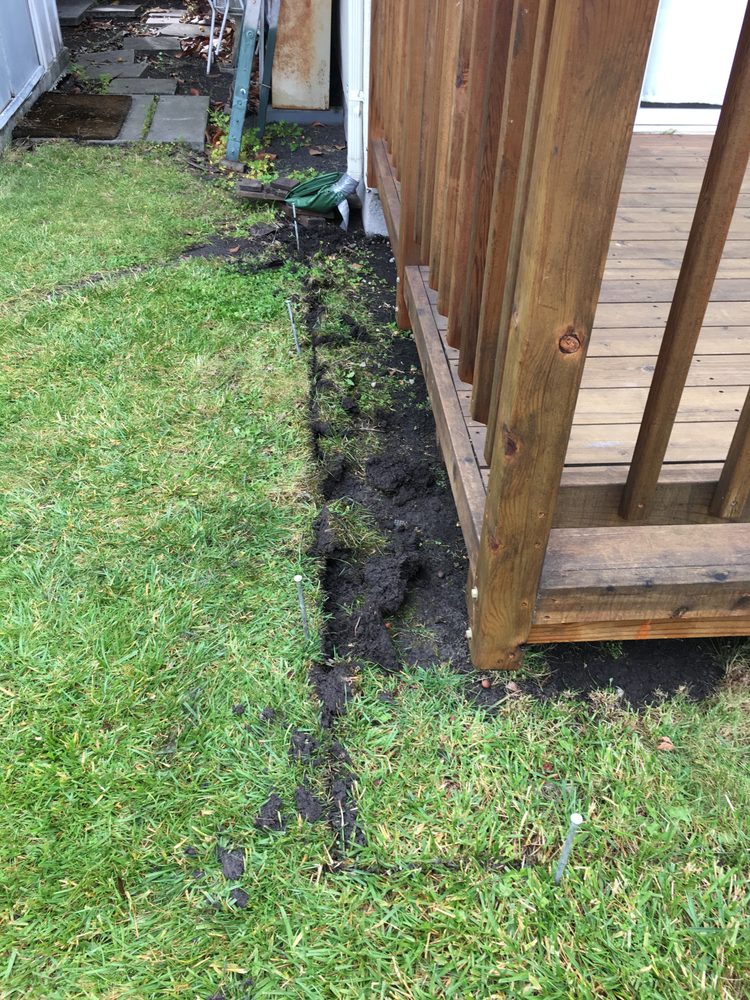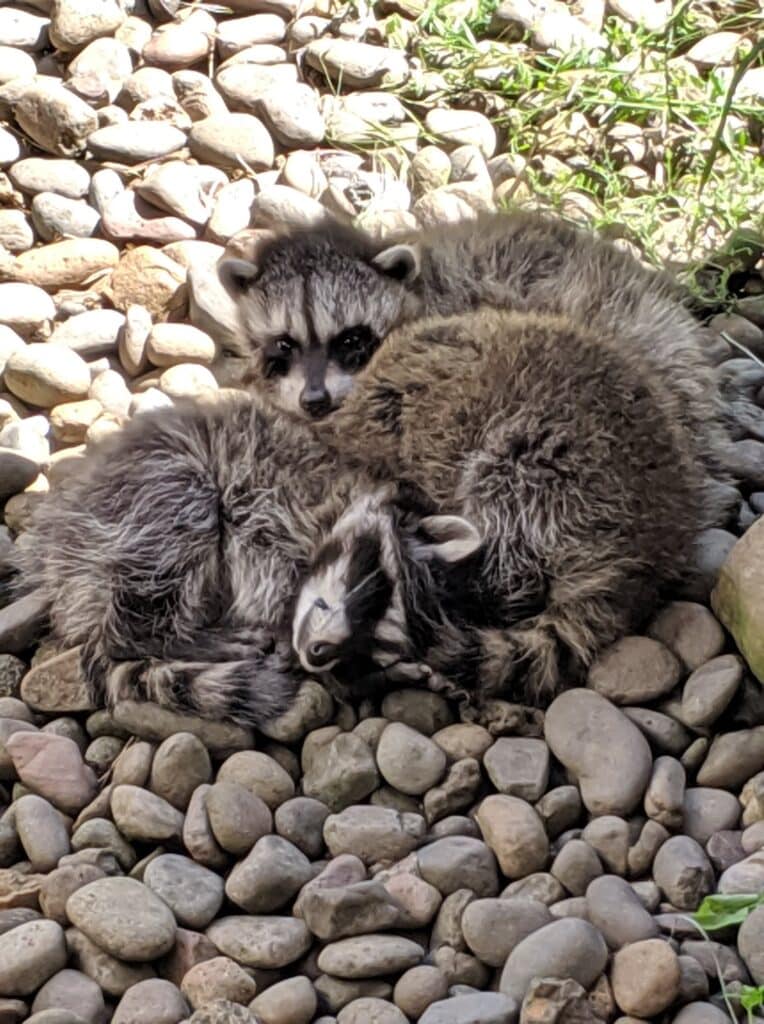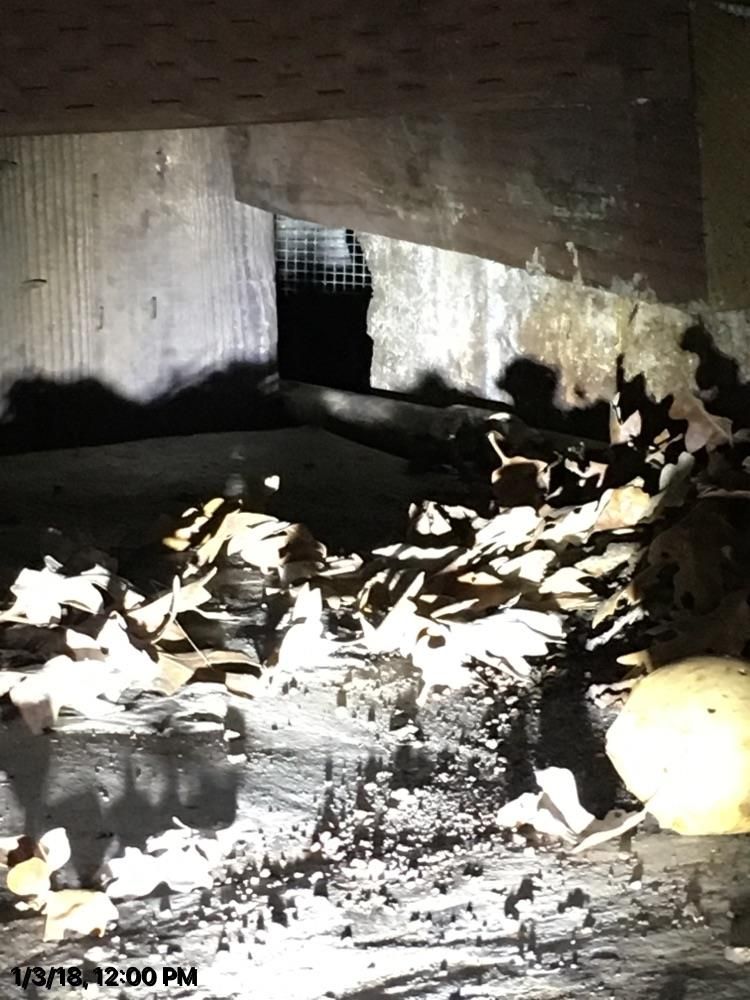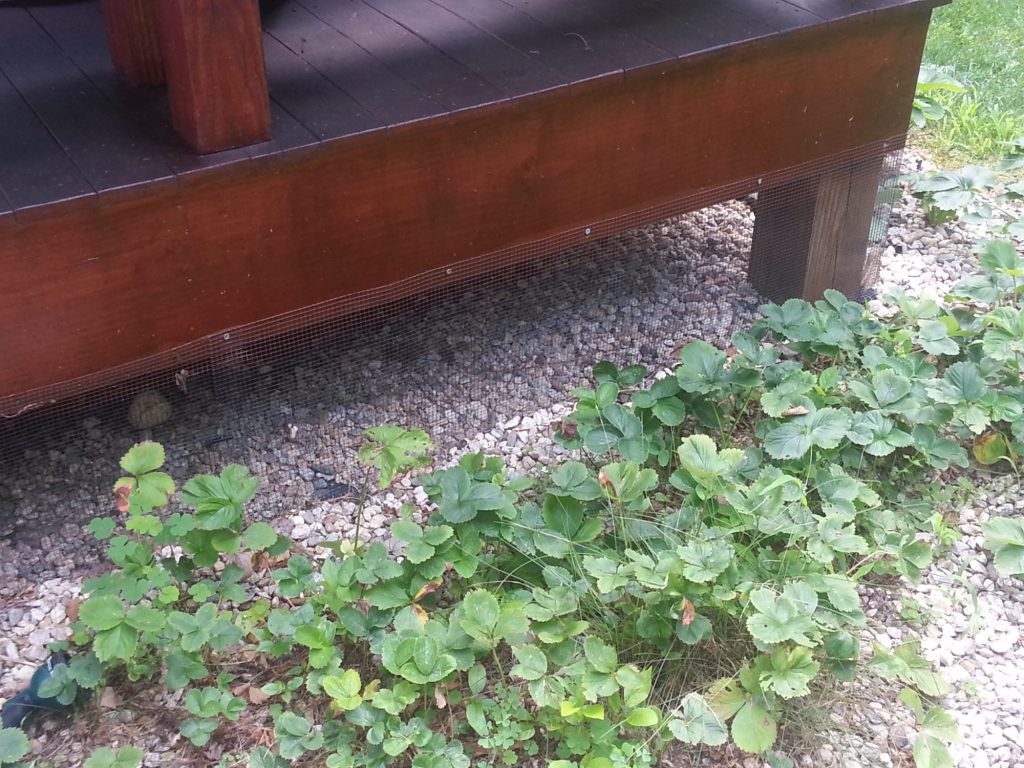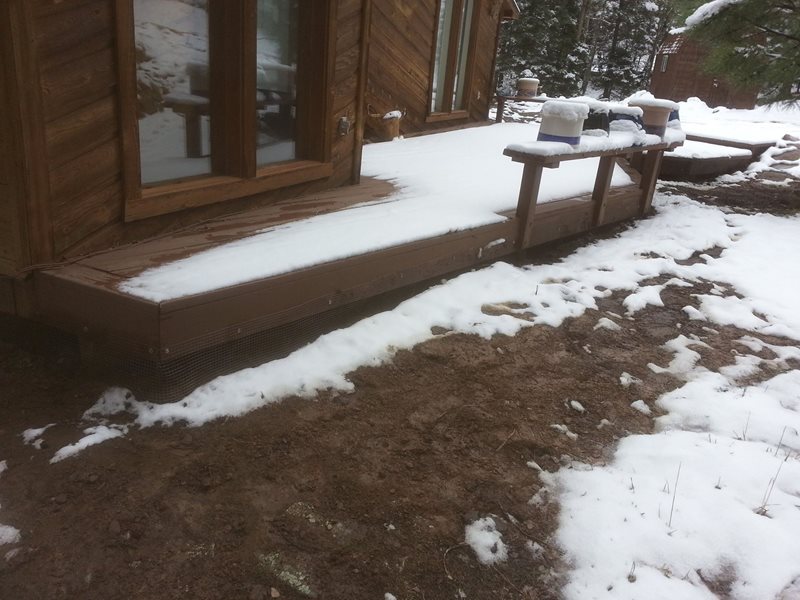Critters have an uncanny knack for making their homes in less-than-ideal places. Many animals will happily make a home under the house. Unfortunately, these unwelcome visitors can lead to unpleasant odors and other issues for the residents of the house.
Let’s explore the types of animals found in the house. Plus, how to remove them.
What Types of Animals are Found Under the House?
The space underneath your house is perfect for many animals to create a cozy home. Although it might seem dank and dark to you, some critters enjoy the security offered by the bulk of your home overhead.
Here are a few of the most common critters that you’ll find under the house:
- Skunks. Skunks may find the perfect spot to create a den under the house.
- Raccoons. Raccoons enjoy taking shelter in the crawlspace and area under your porch.
- Opossums. Opossums may use the space under your house to sleep until night falls.
- Chipmunks. Chipmunks can burrow under the house to cause structural damage in pursuit of a home.
- Rabbits. Rabbits may create a burrow under your porch or under your crawlspace.
- Armadillos. Armadillos are nocturnal animals that may dig small burrows under the house.
- Moles. Moles spend the majority of their time underground and may find themselves under your house, causing foundational issues with the tunnels they build.
- Voles. Voles build elaborate tunnel systems that could lead them directly under your foundation.
- Woodchucks. Woodchucks (or groundhogs) live in burrows dug straight down into the earth. Groundhogs prefer wide-open spaces like crop fields, meadows, pastures, near wooded areas, and even in weedy patches near roadways.
- Mice. Mice may set up shop under the house to have easy access to food stores within your home.
- Rats. Rats may create burrows under the house to access the food within easily.
Each of these animals finds the area under your house as an ideal location to live in. But when these animals move in, they can bring unpleasant odors and dangerous diseases to your doorstep.
Why Do Animals Get Under the House?
Primarily, animals choose to get under the house for the shelter it can provide them.
Most animals you’ll find under the house are likely making their way there to create a burrow or nest. The dark space offers shelter from the elements, making it the perfect spot to call home.
Beyond simple shelter, the space under your house provides close proximity to the food opportunities that come with human presence. For example, they may be chowing down on the food in your garden, eating the food left outside for pets, or taking advantage of any food available in your garbage.
How Do Animals Get Under the House?
Different animals get under the house in different ways. Here’s a closer look at a few examples.
Nuisance Wildlife in Crawlspaces
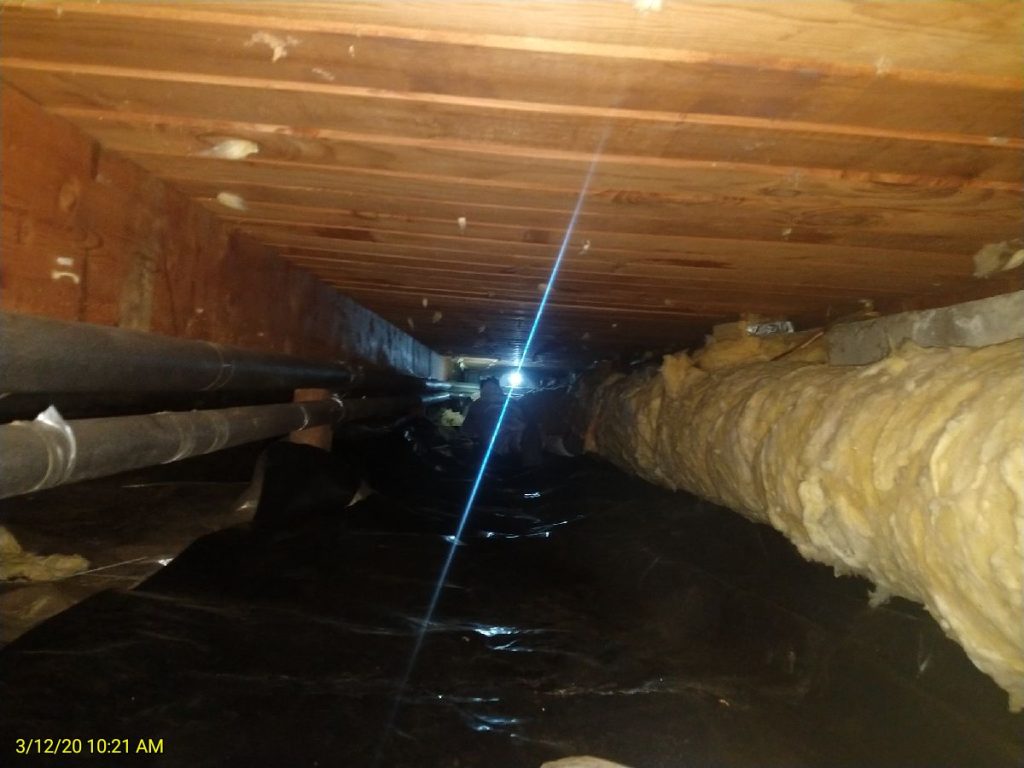
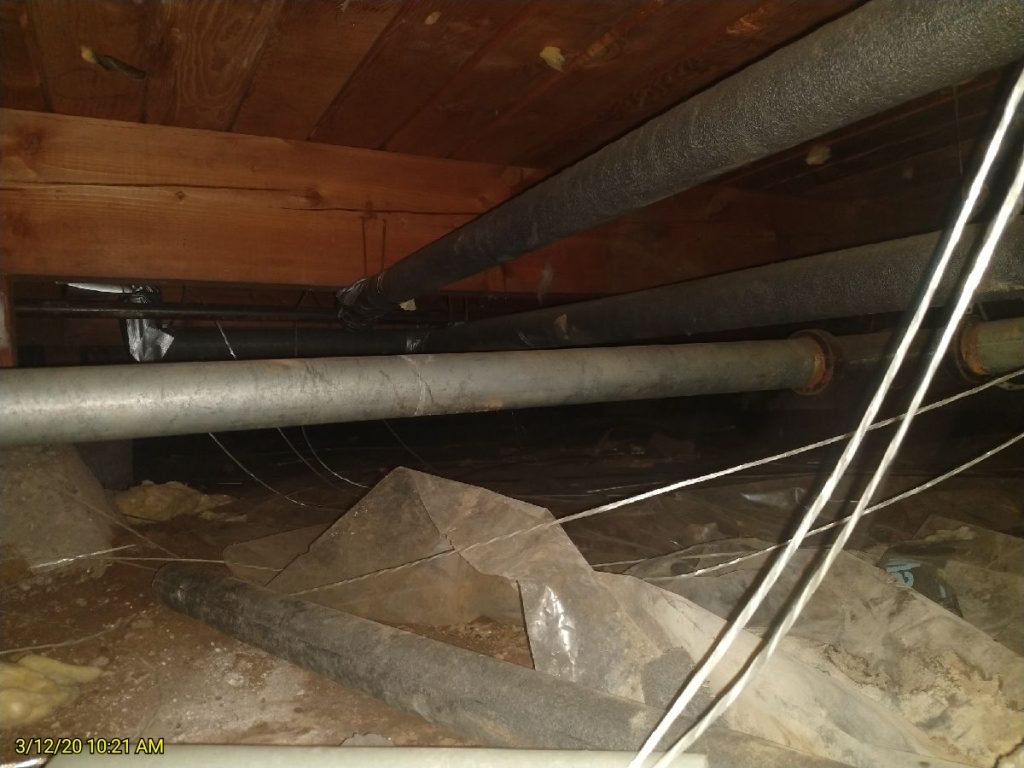
Animals may find their way into your crawlspace if there is a big enough hole to squeeze in. Once inside, the critter may create a den. In your crawlspace, a few animals you might find include raccoons, opossums, skunks, rabbits, mice, armadillos, and rats.
Animals Under the Porch
Like the crawlspace, the area under the porch is an ideal spot for many animals to create their home. If there are any holes available for an animal to slide into the porch, then you might have an unwelcome houseguest on your hands.
Some animals that enjoy making their home under the porch include raccoons, opossums, skunks, rabbits, mice, armadillos, rats, and skunks.
Holes Under the Foundation
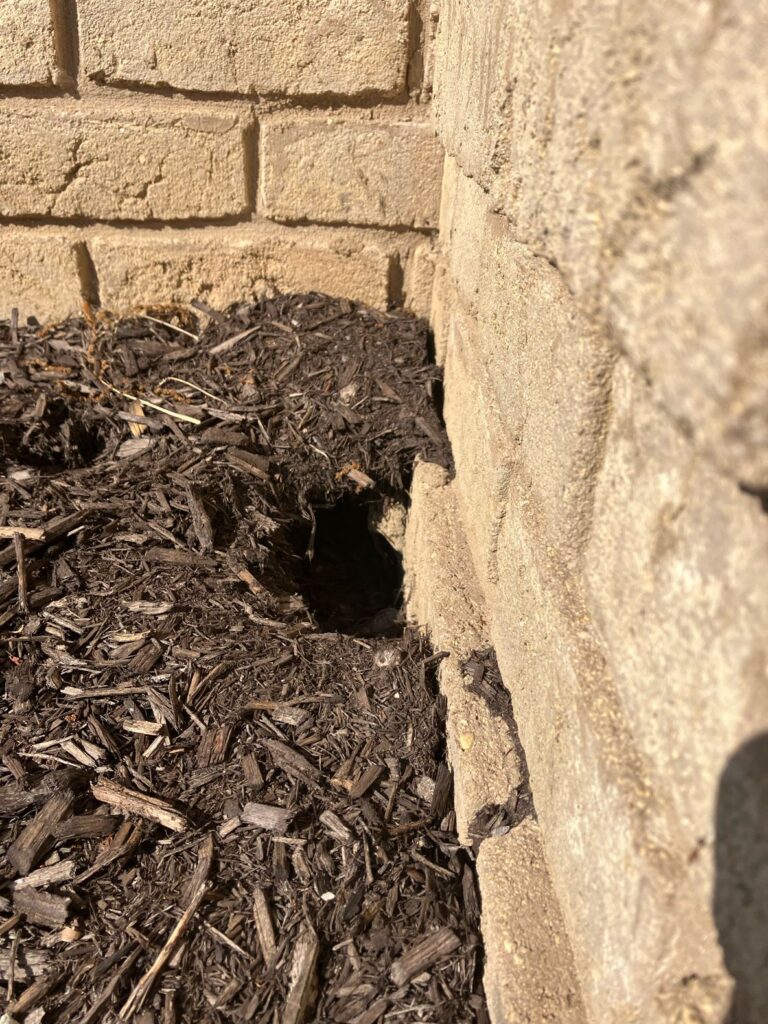
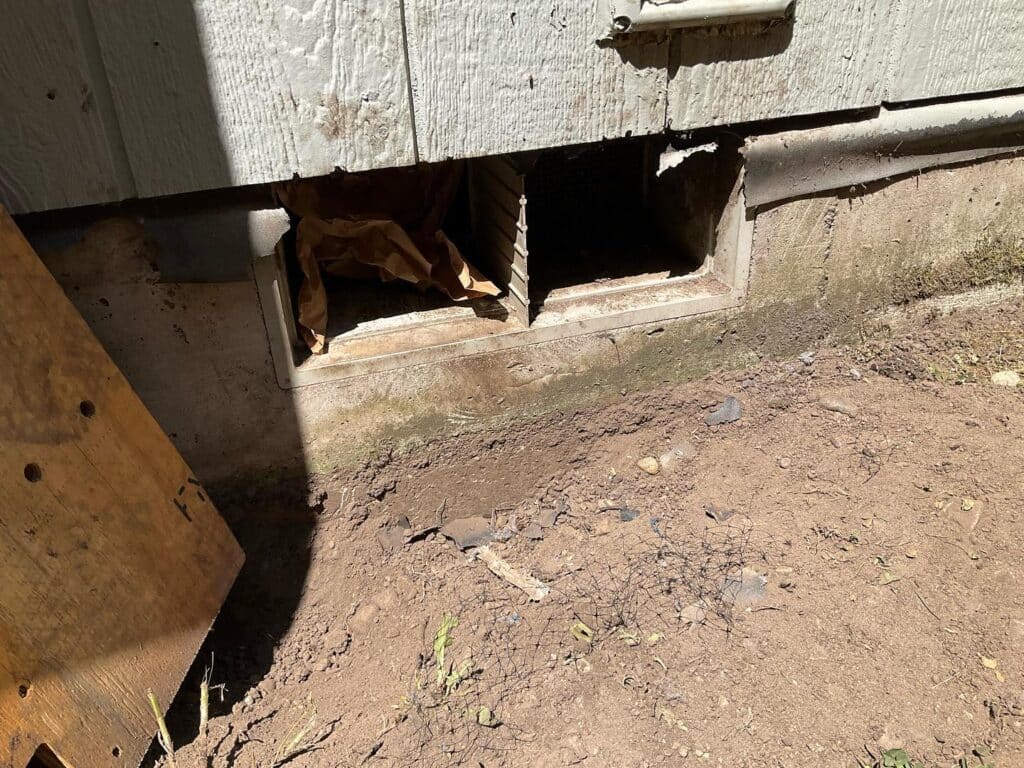
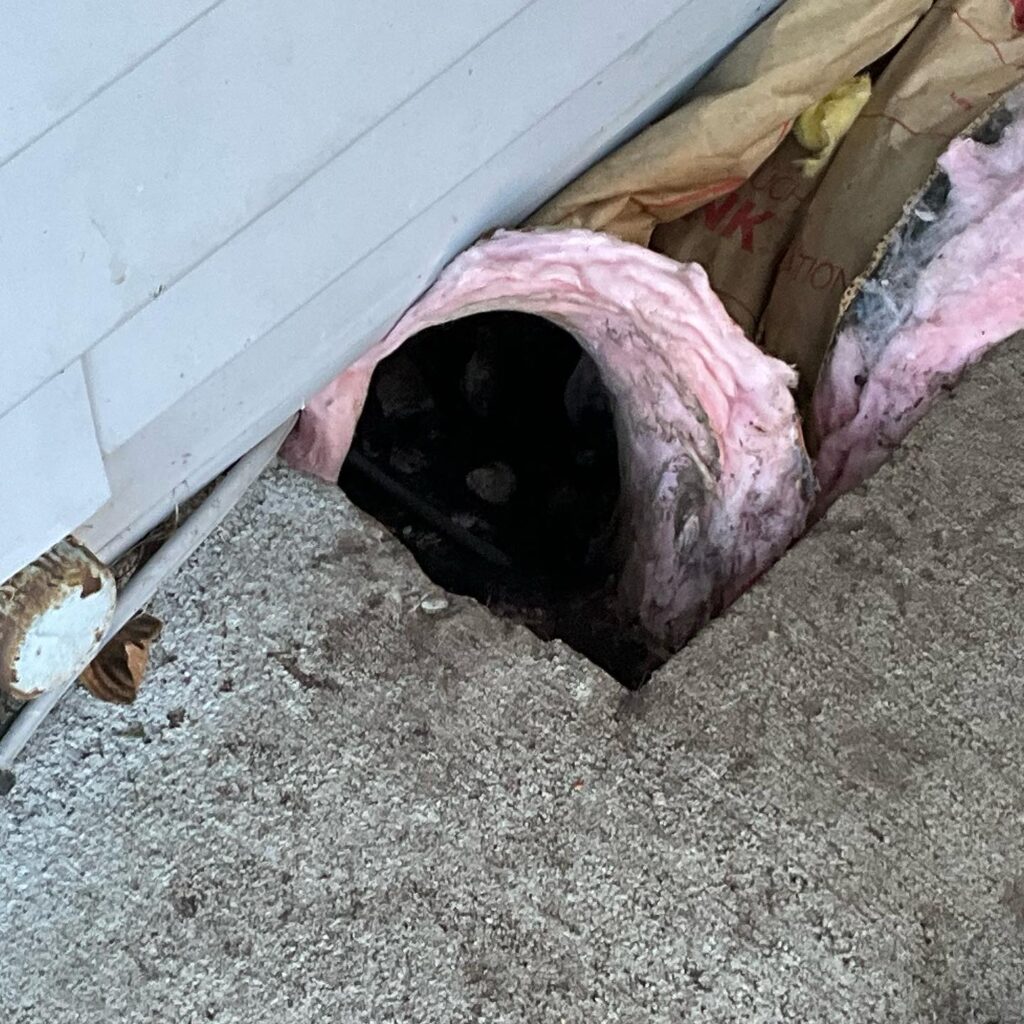
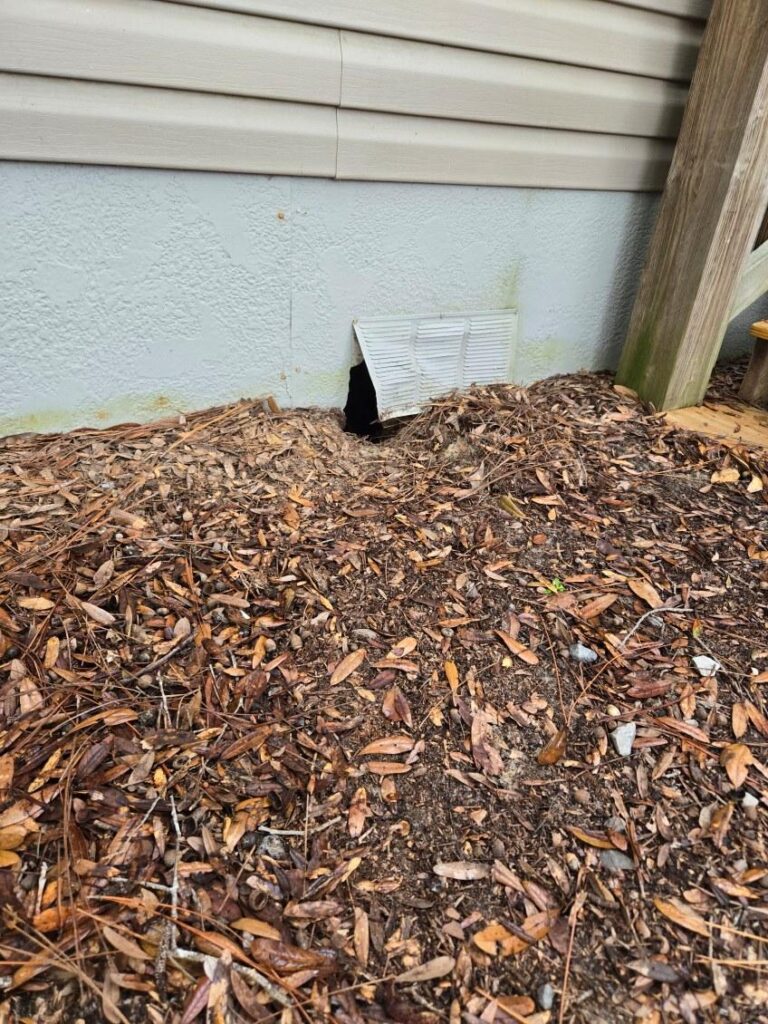
The foundation of your home attracts a different kind of critter. Typically, you’ll find smaller mammals that build a series of tunnels underneath the foundation. Chipmunks and moles are great diggers that can get underneath the foundation of your home. Homeowners in the states like Texas, Oklahoma, Louisiana, Arkansas, Mississippi, Georgia, and Florida can experience armadillos digging under their foundations.
An animal burrow under your foundation can be a risk. You will need to trap and remove the animal. We use specific live traps to catch critters like chipmunks, moles, and armadillos.
How to Get Rid of Animals Under the House?
After discovering that there are animals under the house, you’ll likely want to remove them as soon as possible. Not only can these animals bring diseases to your door, but they also create extremely unpleasant odors to contend with.
Let’s explore how you can get rid of animals in your home.
Get Animal Out of Crawlspaces
If you find an animal living in your crawlspace, it is critical to determine how it got in. As you look for entry points, you might be surprised by the animal’s size compared to the hold.
Here’s how big a hole needs to be for an animal to squeeze through.
- Quarter-inch to 1 inch. Mice and voles.
- 1 inch to 2 inches. Chipmunks.
- 2 inches to 3 inches. Rats.
- 3 or more inches. Raccoons, rabbits, opossums, skunks, groundhogs, armadillos, and more.
Depending on the animal, you might remove it via trapping, installing a one-way door, or simply waiting for it to leave for food. But ultimately, you’ll need to ensure there are no entry holes available to any animals that might return. You might be tempted to try an animal repellent to encourage them to leave. We have found most DIY animal repellents either are ineffective (apple cider vinegar) or dangerous (mothballs).
Get Animal Out from Under Porch
If you find animals under the porch, the first step is to evict the critters. Once the animals are gone, you’ll need to create effective exclusions. Typically, these exclusions will include wire mesh, hardware cloth, and buried fences to prevent more animals from entering.
Do not use chicken wire. Rats and snakes can easily get through it. Stronger animals like raccoons or opossums can break it.
How to keep animals from digging holes around the foundation
If you spot small holes in the dirt around your foundation, you might have animals living under the foundation.
The first step is to fill in any holes that you see to stop the current residents from returning. Additionally, you may need to treat the area with odor-producing chemicals that warn potential pests from making their home under your house.
When you have wild animals in your house, the type of animal will have a big impact on the appropriate wildlife removal strategy. If you need help identifying and resolving an animal infestation, then it’s smart to call in professional help.
Need a hand? Call Critter Control today!
Photos of Animal Holes Under House
Animal Damage to Foundations
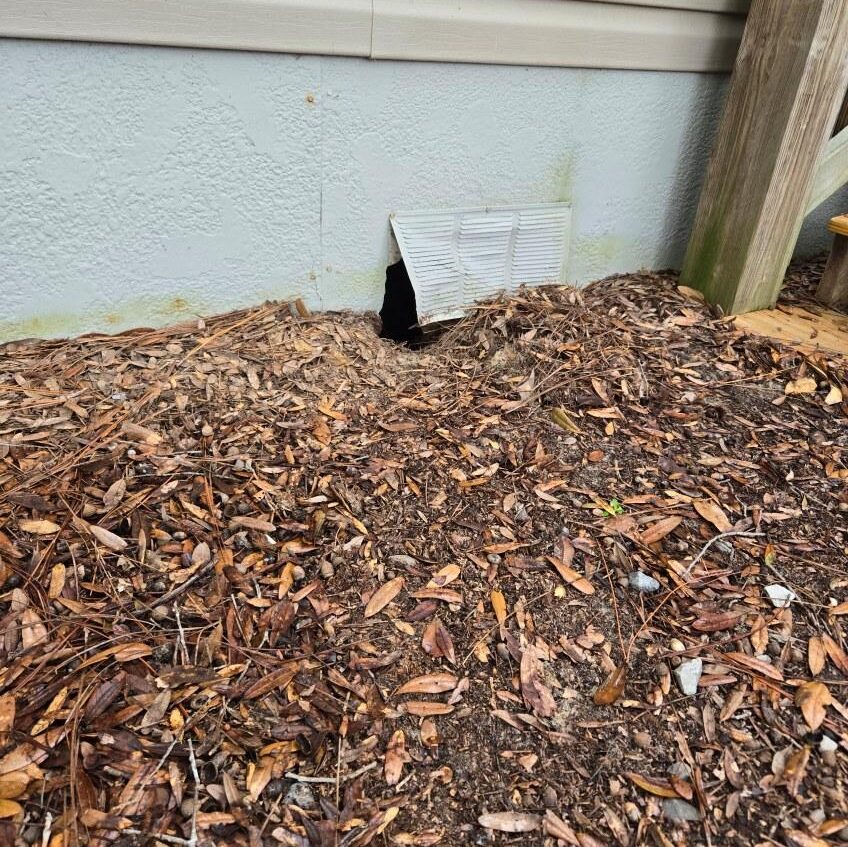
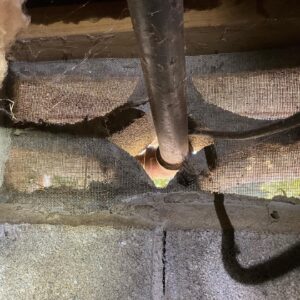
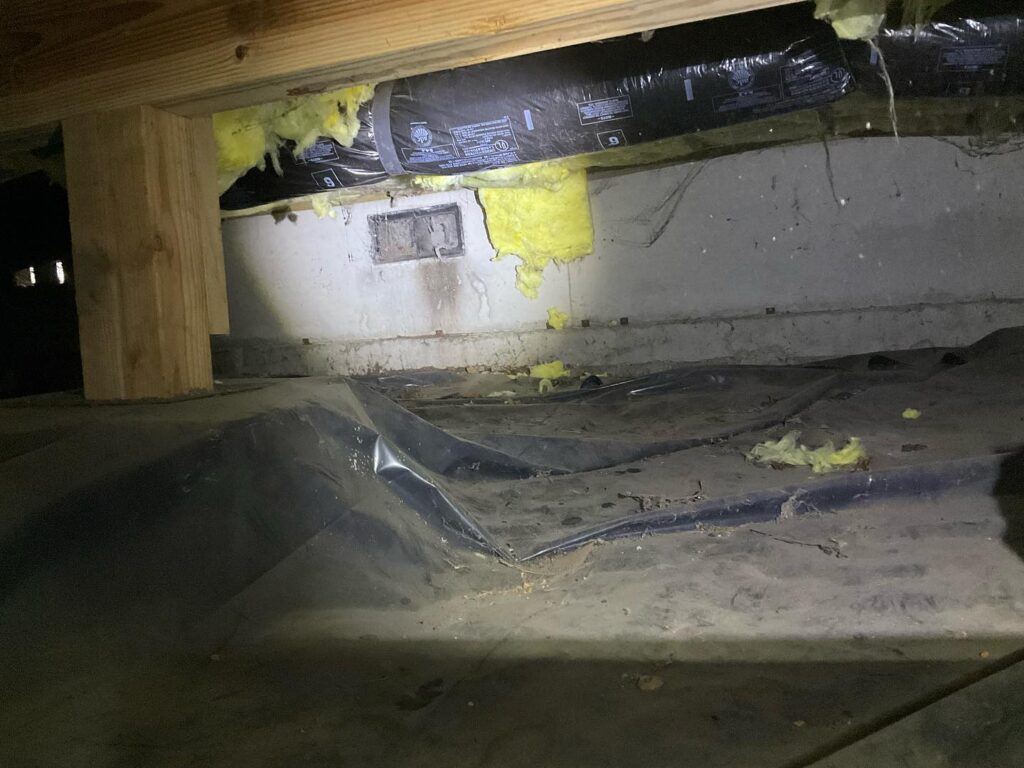

Animal Entry Points into Crawlspaces
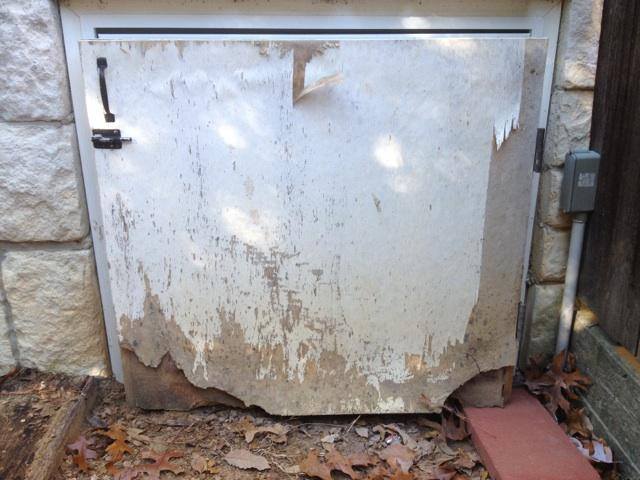
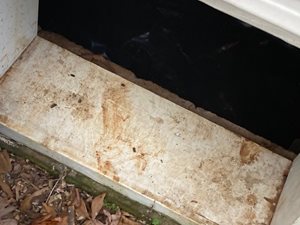
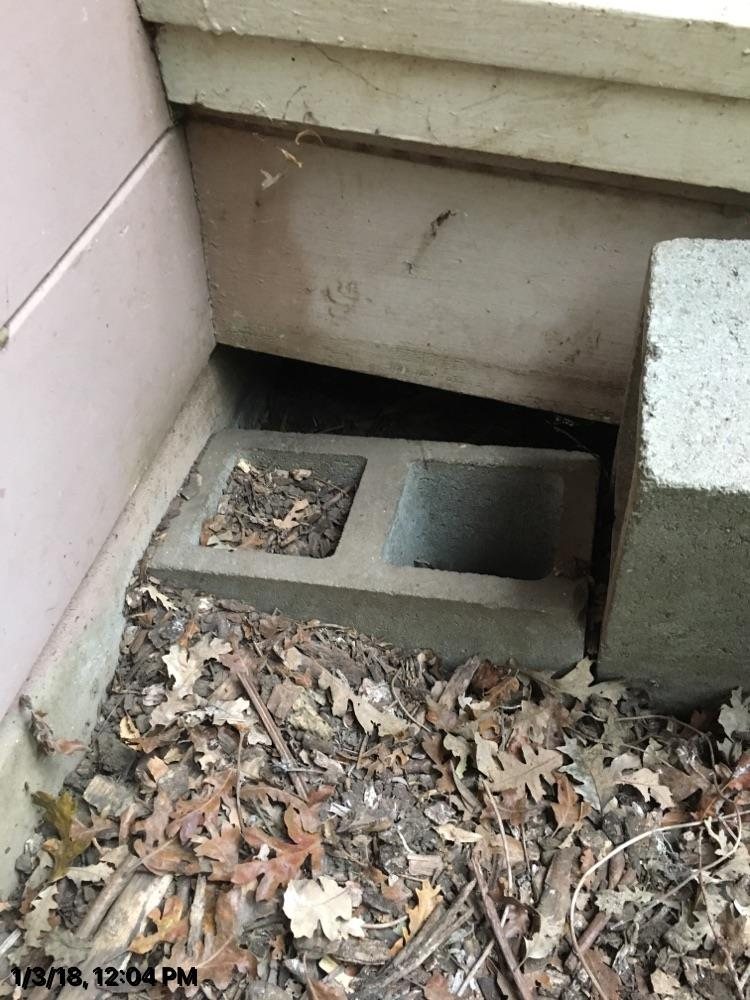
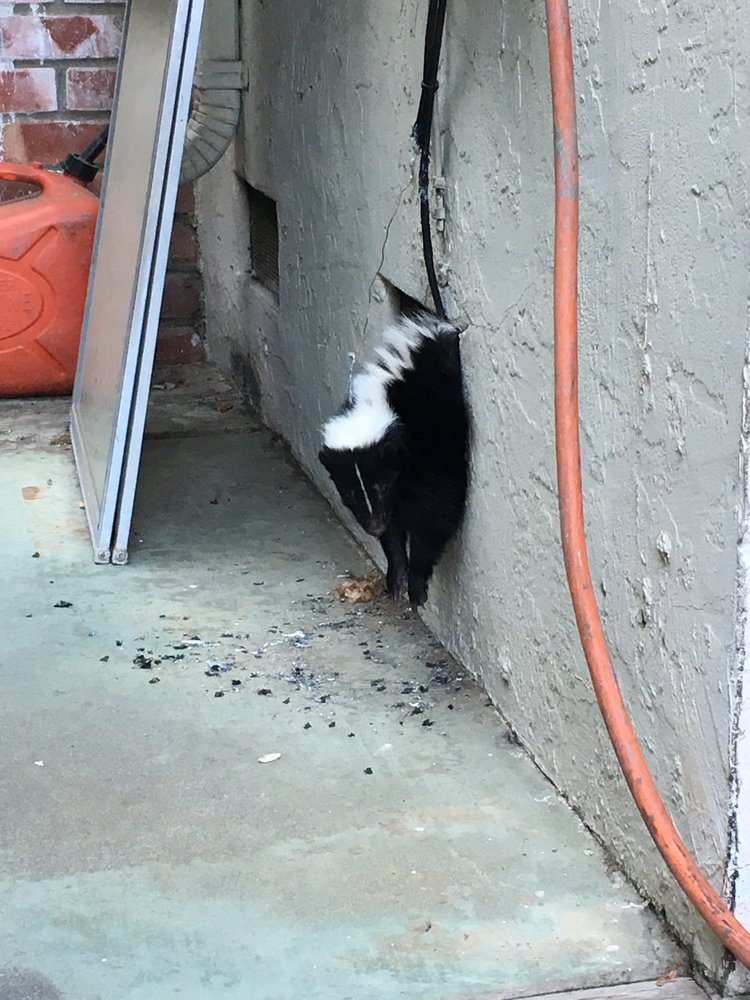
Animals Under Decks and Porches
